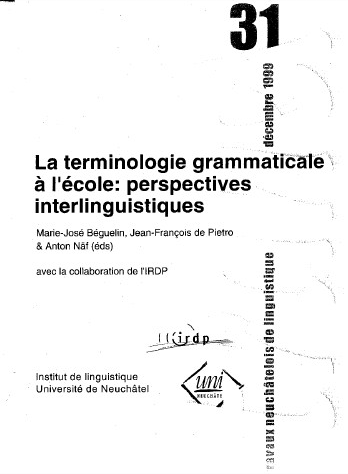Pour ériger des passerelles entre les terminologies grammaticales française et allemande
DOI:
https://doi.org/10.26034/tranel.1999.2669Abstract
This article proposes a new set of criteria intended for the comparison of grammatical terminologies for different languages. Applied to French and German, the mother tongue and the first «foreign» language taught in public schools in the French speaking part of Switzerland, the proposed criteria result in a classification into five subgroups, ranging from simple synonymy (préposition vs Präposition) to the tricky case of the «false friends» (attribut vs Attribut) and the non-existence of certain categories in one of the two languages (passé simple or Genitiv).
An examination of the grammatical terminologies used in textbooks for German as a foreign language in French speaking Switzerland, especially in the field of the simple and the complex sentence, shows that these textbooks are in no way based on the terminological foundations laid by grammar classes in the students’ mother tongue. This conclusion holds true even for the newest generation of textbooks currently being introduced in state schools. In view of this unsatisfactory state of affairs, the call made by E. Roulet in 1980 for an integrated methodology of first and the second/foreign languages unfortunately continues to remain an unfulfilled desideratum.


